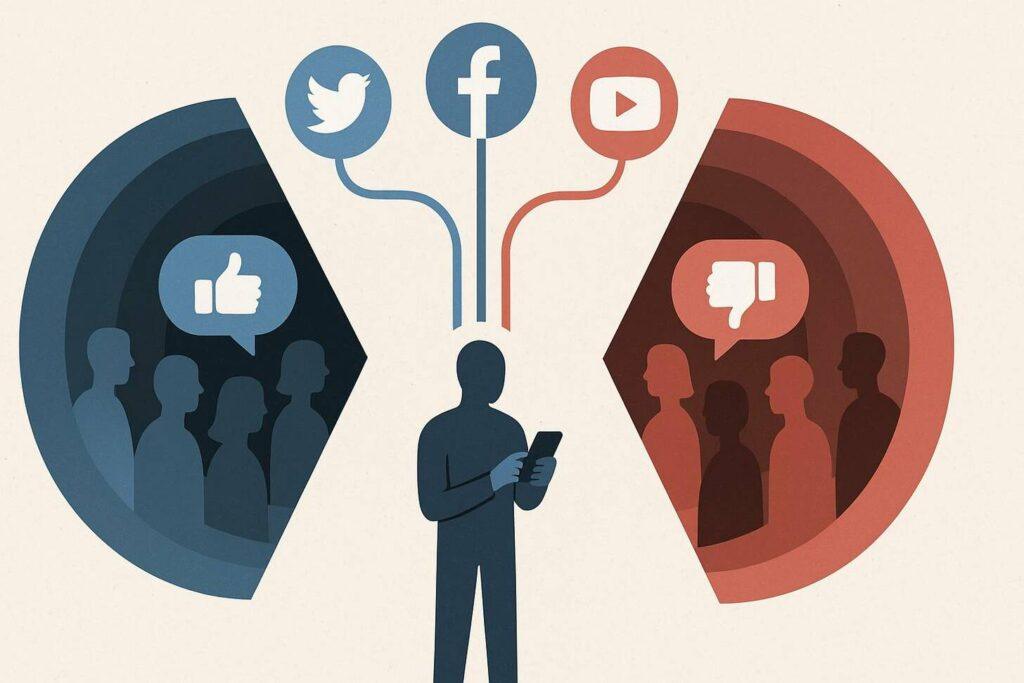Have you ever met someone who thinks their team, country, or community is the best—no questions asked? This mindset is part of the collective narcissism mental model.
It’s a bias where people believe their group is superior and deserves special treatment. Unlike healthy pride, this attitude often demands constant praise from others to feel valid.
Think about sports rivalries or political debates. When fans trash-talk opponents or voters dismiss other parties, that’s the collective narcissism mental model in action.
Even companies can fall into this trap, prioritizing dominance over teamwork. The United States, for example, has seen this play out in heated cultural debates.
Why does this matter? Groups with this mindset struggle to collaborate. They focus on “winning” instead of solving problems.
Social media amplifies these clashes, turning small disagreements into full-blown arguments. But there’s hope: recognizing this pattern helps us build healthier connections.
Key Takeaways
- Collective narcissism mental model is a bias where groups believe they’re superior to others.
- It often shows up in sports, politics, or workplace cultures.
- This mindset relies on external validation to feel secure.
- Social media can make group conflicts worse.
- Understanding this concept improves teamwork and communication.
Defining The Collective Narcissism Mental Model

Why do some groups act like they’re better than everyone else? This idea isn’t new. Early thinkers like Sigmund Freud explored how group pride shapes behavior.
Later, Erich Fromm linked it to societies seeking identity through exaggerated self-importance. Over time, researchers refined these theories into what we now call collective narcissism, a phenomenon observed in New York and beyond, where narcissists often influence group belief systems among people.
Origins and Evolution of the Concept
Freud described groups as mirrors for personal egos—a way to feel powerful through shared identity. Fromm argued this need often comes from insecurity. Modern studies, like those by Golec de Zavala, show it’s more than pride.
It’s a craving for others to confirm a group’s special status in the context of the collective narcissism mental model. Without that validation, members feel threatened, reflecting various types of narcissism and their impact on group image.
Core Characteristics and Biases
These groups share clear traits. They demand praise but dismiss outsiders’ opinions. For example, fans might mock rival teams while ignoring their own flaws.
Research finds this mindset links to conspiracy theories and aggression toward critics. One study showed groups with high narcissism scores were quicker to blame others for problems.
Ever wonder why some communities refuse to compromise? It’s not just stubbornness. Their belief in being uniquely right makes cooperation feel like surrender.
This “us vs. them” thinking fuels division in politics, workplaces, and online spaces. Recognizing these patterns helps teams avoid toxic rivalries and build real trust.
Research and Psychological Insights

Why do groups sometimes lash out when criticized? Studies reveal this reaction isn’t random—it’s tied to deep-rooted biases related to collective narcissism.
Researchers like Golec de Zavala found that groups craving constant validation often respond aggressively to perceived threats, a hallmark of narcissism among people. Let’s break down what science tells us about these narcissists and their ways of thinking.
Evidence from Key Studies
In 2009, Golec de Zavala’s team discovered something striking. Groups with inflated self-views were quick to blame outsiders for problems. For example, they’d dismiss rival political parties as “dishonest” while ignoring their own flaws. This pattern predicted hostile reactions, like refusing to collaborate on solutions.
From Hostility to Conspiracy Thinking
Later research by Agroskin (2013) showed these groups often believe conspiracy theories. Why? Feeling threatened makes them see hidden enemies everywhere.
Imagine coworkers convinced management is sabotaging their team—even without proof. Cichocka’s 2017 work found similar links to defensive behaviors, like spreading rumors about competitors.
How does this mindset lead to conspiracy beliefs? It’s a shield against criticism. If your group must be perfect, any failure must be someone else’s fault.
Journals like Personality and Social Psychology confirm these traits harm teamwork and trust. The takeaway? Unchecked group pride fuels real-world conflicts, from online arguments to workplace tensions.
Examples in Social, National, and Corporate Contexts

What happens when a group or nation sees itself as irreplaceably exceptional? This mindset, rooted in the collective narcissism mental model, shapes everything from political rallies to boardroom strategies.
Let’s explore how it plays out in two arenas: nations and companies, highlighting how collective narcissism predicts certain social psychology outcomes and their consequences.
Collective Narcissism Mental Model: National Pride Turned Toxic
Some movements frame their country as uniquely virtuous. For example, toxic nationalism often portrays outsiders as threats to “true” values. A 2021 study in the Journal of Personality found such groups overstate their historical achievements while downplaying harm caused to others. This fuels hostility toward immigrants or rival nations.
Corporate Cultures of Superiority
Ever worked for a company that mocked competitors instead of learning from them? Teams with this trait often dismiss feedback, calling critics “jealous.”
Research shows employees in these environments report lower job satisfaction—even when winning. Why? Constant rivalry drains morale.
Tech giants sometimes fall into this trap. One firm’s leaked memo boasted, “Other companies just copy us.” Yet their products lagged behind within months. This “us vs. them” thinking hurts innovation and teamwork.
Whether in politics or business, these dynamics share roots. Groups demand praise but resist self-reflection. The consequences? Stalled progress and simmering conflicts. How can we spot—and stop—this pattern?
Digital Influence and the Spread of Group Narcissism

Ever notice how online groups quickly turn into “us vs. them” battlegrounds? Social media platforms amplify group pride, often twisting it into something darker.
Algorithms feed users content that matches their beliefs, creating echo chambers where criticism feels like an attack. This environment fuels group narcissism—a need for others to constantly affirm a team’s superiority.
Role of Social Media and Echo Chambers

Platforms like Facebook and X (Twitter) reward bold claims with likes and shares. Posts declaring, “Only real patriots support our policies” or “True fans know we’re unbeatable” thrive here.
These statements demand loyalty while dismissing outsiders. During COVID-19, research found groups with high narcissism scores spread more conspiracy theories, blaming “hidden enemies” for the crisis.
Identifying Collective Narcissistic Statements Online
How can you spot these posts? Look for phrases like:
- “Our way is the only right way.”
- “Anyone who disagrees is a traitor.”
Genuine pride focuses on shared goals. Narcissistic groups fixate on dominating others. Tools like the collective narcissism scale measure this by analyzing demands for praise and hostility toward critics.
Ever seen comments like, “Other companies just copy us” or “Our culture is superior”? These signal a need for external validation. Recognizing these patterns helps avoid pointless fights. As studies show, spotting these cues can turn heated debates into constructive talks. Do you see these kinds of posts in your feed?
Group Collaboration and Social Hostility

When teams clash over beliefs instead of facts, progress stalls. This pattern often stems from a group’s need to prove superiority, a hallmark of collective narcissism, rather than solve problems.
Studies in personality social psychology reveal how these narcissistic traits damage relationships and spark hostility, particularly when another group is involved. The satisfaction associated with feeling superior can lead to further conflict.
Impact on Intergroup Relationships
Groups with inflated self-views struggle to build trust. Research shows they’re 3x more likely to dismiss outsiders’ ideas. For example, a 2022 study found teams that refused feedback completed projects 40% slower than open-minded groups.
Barriers to Compromise and Constructive Dialogue
Ever seen coworkers ignore valid concerns to “win” arguments? This mindset breeds intergroup hostility. A tech startup’s engineers once rejected user feedback, insisting their design was “flawless.” The product failed within months.
| Behavior | Collaborative Groups | Narcissistic Groups |
|---|---|---|
| Openness to Feedback | Seek diverse opinions | Dismiss criticism |
| Conflict Response | Focus on solutions | Blame others |
| Problem-Solving Speed | Faster resolution | Delays & stalemates |
These dynamics hurt both office morale and community ties. A political study found teams scoring high in narcissism took 68% longer to reach compromises. Recognizing these patterns helps teams pivot from rivalry to results.
Conclusion
How can groups work together without falling into superiority traps? The collective narcissism mental model- believing one’s team or nation is uniquely exceptional—creates roadblocks in sports, politics, and workplaces.
Studies by Golec de Zavala show this need for constant praise fuels hostility and distrust toward outsiders.
From toxic nationalism to corporate rivalries, this pattern harms progress. Teams dismiss feedback, while online echo chambers amplify conspiracy theories. During COVID-19, research found groups with these traits blamed imagined enemies instead of solving problems.
What steps can we take? Start by recognizing these behaviors. A tech company’s failed product launch teaches us: dismissing criticism leads to dead ends. Open communication builds bridges. Ask, “Are we seeking truth or just victory?”
Healthy pride celebrates achievements without belittling others. By valuing diverse perspectives, groups foster real solidarity. Let’s replace “us vs. them” with “we’re better together.”


